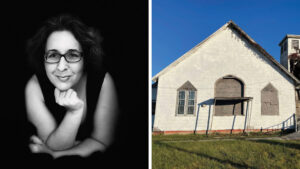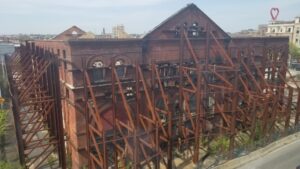With the unraveling debauchery of Purim in our rearview mirror, I quickly began to think about the preparation and order of the coming weeks in anticipation of Pesach. My journey to tap into the rhythm of the Jewish calendar has become an essential part of my Jewish identity over the years, inviting me to move along a continuum of themes and emotions, each appropriate for the seasons and holidays cycled through along the way.
In a few weeks, families and friends will come together for the Jewish ritual that, perhaps more than any other, remains closely observed even by the most “spiritual but not religious” amongst us — the Passover seder. Where Purim is about flipping things on their head and considering even the most sacred “truth” from a different perspective, Passover is about preparation, formality and order. On Pesach, we tell the story of our people’s liberation from ancient Egypt and the cruel enslavement of the Israelites under Pharaoh’s rule. Our story begins in degradation and ends in liberation. It is an equation by which we start in a narrow place, set out to wander amidst a period of uncertainty with the assurance of ultimately arriving at the Promised Land that will be blessed by God. It’s an epic tale with drama, action and supernatural intervention.
To me, it is more than a story. It is actually an equation I believe reflects the human experience … not just for our people in Egypt thousands of years ago, but for all time and for all people. In the prayer book that I regularly use is the following poem by Michael Walzer:
Standing on the parted shores of history, we still believe what we were taught before we ever stood at Sinai: that wherever we are, it is eternally Egypt that there is a better place, a Promised Land; that the winding way to that promise passes through the wilderness that there is no way to get from here to there except by joining hands, marching together.
The power of the rhythm of the Jewish holiday cycle is that we encounter the same holidays and progressions every year, but we are different. When we reach Pesach, or any season, we connect with the power of a time in which we have never been before and also allows us to reflect on where we have come from, based on years past when we have reached the same holidays.
Perhaps more than any other holiday, Pesach is about the collective narrative of the Jewish people and about each and every one of us individually. We are commanded to see ourselves as if we each were part of the community brought out of Egypt. During our seder, we reenact the drama and participate in ritual as if to say, I was freed from Egypt. It is also an invitation to put ourselves in the shoes of the marginalized, the oppressed, the enslaved. It is a time to reflect on the systems of power and struggle that individuals and whole groups of people are fighting today; to consider the Pharaohs in our time and the acts of justice and compassion required for liberation and, ultimately, revelation.
In my opinion, it is one of the most precious gifts I have been given as a Jew. Because I was a slave in Egypt, I open my eyes to where slavery still exists. Because my people were forced into oppressive labor circumstances by Pharaoh, I work toward overcoming justice issues around labor and workers’ rights. Because God liberated the Israelites with an empathic heart and outstretched arm, I offer my time and resources to help provide for those in our society today who are marginalized and overlooked. I am not just a person recalling the great miracles and liberation that took place for my people so many years ago. I am part of an unfolding and ever-relevant narrative, and the Pesach season is a reminder of my individual role to play in a collective tale that continues to reveal the work to be done if we are truly in pursuit of a Promised Land.
 Rabbi Jessy Gross is director of Charm City Tribe and JCC director of Jewish Learning and Life.
Rabbi Jessy Gross is director of Charm City Tribe and JCC director of Jewish Learning and Life.





